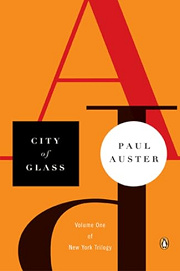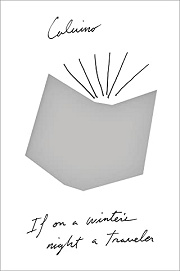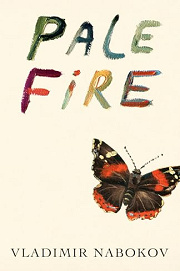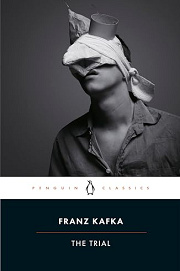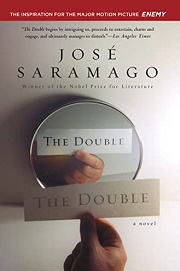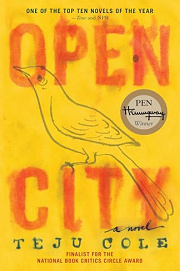Share your thoughts in a quick Shelf Talk!
City of Glass by Paul Auster
A reclusive writer vanishes, and a private-eye who may not be real hunts him through a maze of clues, doubles, and city streets that echo like dreams. Detective fiction dissolves into something stranger and sharper. City of Glass is a hypnotic, mind-bending meditation on identity, language, and the stories we inhabit.
Have you read this book? Share what you liked (or didn’t), and we’ll use your answers to recommend your next favorite read!
Love City of Glass but not sure what to read next?
These picks are popular with readers who enjoyed this book. Complete a quick Shelf Talk to get recommendations made just for you! Warning: possible spoilers for City of Glass below.
In City of Glass, did you enjoy ...
... the mind-bending, self-referential detective puzzle?
If on a winter's night a traveler by Italo Calvino
You loved how Daniel Quinn answers a wrong-number call meant for “Paul Auster,” then chases a case that slowly morphs into a story about stories—complete with the red notebook and that vertiginous Auster-as-character reveal. Calvino’s If on a winter’s night a traveler turns that same thrill into its whole engine: you, the reader, become a character navigating false starts, missing chapters, and narrative trapdoors. If following Stillman through Manhattan felt like tailing meaning itself, Calvino lets you pursue the very act of reading with the same dizzying fascination.
... a narrator whose version of events you can’t quite trust?
Pale Fire by Vladimir Nabokov
In City of Glass, the ground keeps slipping—Quinn’s identity blurs, the case refracts, and even the narrator’s authority collapses when “Paul Auster” strolls onstage. Nabokov’s Pale Fire perfects that delicious uncertainty: a 999-line poem is “annotated” by Charles Kinbote, whose footnotes hijack the text and twist every fact to fit his private myth. If the red notebook made you question what can be reliably recorded, Kinbote’s commentary will make you question what can be reliably read.
... the existential riddles about identity, language, and fate?
The Trial by Franz Kafka
Quinn’s surveillance of Peter Stillman Sr., the meditations on Adamic language, and that creeping sense that meaning is always one step ahead—these echo through Kafka’s The Trial. Josef K. is arrested for reasons never clarified, caught in a maze of opaque procedures and shifting authorities. If the Stillman case felt like pursuing a puzzle that exposes the limits of reason, Kafka’s courtroom without laws will give you that same chill of cosmic ambiguity.
... watching a solitary mind fray under the pressure of an investigation?
The Double by José Saramago
Following Stillman through the city, Quinn’s identity thins until he’s almost only his red notebook. In Saramago’s The Double, Tertuliano Máximo Afonso discovers his exact look-alike and begins a private manhunt that destabilizes his sense of self. If Quinn’s stakeouts and self-erasure gripped you, Saramago’s hypnotic unraveling—where “finding the answer” threatens the finder—offers the same intimate, claustrophobic descent.
... a lone flâneur drifting through New York and taking obsessive notes?
Open City by Teju Cole
Much of the charge in City of Glass comes from simply walking Manhattan—Quinn tailing Stillman, mapping routes, filling pages of the notebook as the city becomes a text. In Open City, Julius wanders New York and beyond, his reflections turning streets into an atlas of memory, identity, and chance encounters. If those quiet hours of urban drifting in Auster felt spellbinding, Cole offers that same intense, solitary attention to the city’s secret currents.
Unlock your personalized book recommendations! Just take a quick Shelf Talk for City of Glass by Paul Auster. It’s only a few questions and takes less than a minute.
